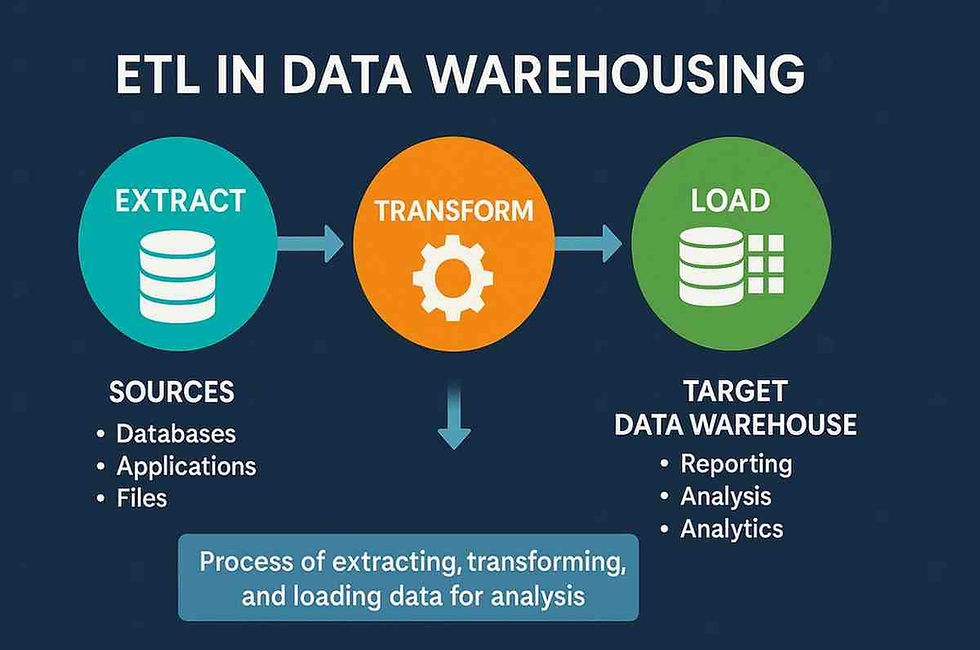Unlocking the Importance of Regression Testing in QA
- Gunashree RS
- Dec 3, 2024
- 4 min read
Introduction
In the fast-paced world of software development, regression testing stands as a cornerstone of quality assurance (QA). It ensures that new updates or changes to software do not introduce errors in existing functionalities. As businesses across industries increasingly adopt agile methodologies and continuous integration/continuous deployment (CI/CD) workflows, the relevance of regression testing has never been greater.
This guide dives deep into the importance of regression testing, its role in modern QA processes, and how innovative AI-powered solutions like Devzery are transforming the landscape.
What is Regression Testing?
Regression testing is a QA practice where previously executed test cases are re-run to confirm that recent changes in code or software updates have not disrupted existing functionalities.
How Regression Testing Maintains Stability
Validates Software Updates: Ensures that new features or bug fixes do not negatively affect other parts of the system.
Minimizes Risks: Identifies potential issues early in the development process, reducing the likelihood of costly errors.
Preserve User Experience: Maintains app performance and reliability, which are critical for user trust.

Why Regression Testing is More Relevant Today
The rapid pace of software innovation has increased the complexity of applications and systems, necessitating robust testing methodologies like regression testing.
1. Fast-Paced Development Cycles
With frequent iterations and shorter release cycles, modern software development requires continuous testing to avoid introducing new bugs. Regression testing ensures that even in fast-paced environments, quality is not compromised.
2. Increasing Complexity of Software Systems
Applications today integrate with multiple APIs, platforms, and devices. This complexity makes it essential to have thorough testing processes that can detect and address compatibility issues.
3. Rising User Expectations
Users expect flawless performance with every update. Regression testing ensures updates meet these expectations without introducing glitches.
Why Regression Testing is Non-Negotiable for Modern QA
Regression testing has become indispensable for maintaining software quality and avoiding costly errors.
1. Avoiding Downtime and Bugs
Untested updates can lead to system failures, downtime, and customer dissatisfaction. For example:
E-commerce Platforms: An untested update during a sale could disrupt transactions, resulting in revenue loss.
Healthcare Systems: Bugs in medical software could compromise patient care.
2. Protecting Brand Reputation
Software glitches can tarnish a brand’s reputation, leading to a loss of trust among users. Regression testing prevents such incidents by identifying and addressing issues before deployment.
3. Supporting CI/CD Pipelines
Regression testing seamlessly integrates into CI/CD workflows, ensuring quality at every stage of the development cycle. Platforms like Devzery simplify this integration, enabling automated testing that matches the speed of modern development.
Regression Testing in the Era of AI and Automation
The rise of artificial intelligence (AI) and automation has significantly enhanced the effectiveness of regression testing.
1. How AI Transforms Regression Testing
AI algorithms can prioritize test cases based on their likelihood of failure, optimize test coverage, and detect anomalies faster than traditional methods.
2. The Benefits of Scalable, Codeless Testing
Devzery’s AI-powered platform offers codeless testing solutions that:
Reduce reliance on manual scripting.
Scale effortlessly to accommodate large applications.
Provide real-time insights into test results and performance.
3. Industry Examples
Fintech: AI-enhanced regression testing ensures secure and glitch-free transactions.
Healthcare: Automated testing validates compliance with regulatory standards while maintaining software reliability.
Cost and Time Efficiency Through Regression Testing
Automation in regression testing provides substantial cost and time savings, especially for enterprises.
1. Reducing Manual Testing Costs
Manual regression testing can be resource-intensive, requiring extensive human effort. Automated tools lower these costs by eliminating repetitive tasks and improving efficiency.
2. Accelerating Time-to-Market
Automated regression testing reduces the time required to test updates, allowing quicker deployments without compromising quality. For enterprises operating in competitive markets, this agility is crucial.
Common Challenges and Devzery’s Solutions
Despite its advantages, regression testing poses several challenges, particularly in traditional setups.
1. Challenges in Traditional Regression Testing
High Resource Costs: Manual testing requires significant time and effort.
Long Test Cycles: Traditional methods may not match the speed of agile development.
Difficulty in Scaling: Legacy systems often struggle to handle modern application complexities.
2. How Devzery Solves These Problems
Devzery’s AI-powered regression testing platform addresses these challenges with the following:
Codeless Automation: Simplifies test creation and execution, even for non-technical users.
Integration with CI/CD Pipelines: Ensures testing aligns seamlessly with development workflows.
Scalability: Handles complex software environments, making it suitable for large enterprises.
Real-world examples from industries like logistics and e-commerce demonstrate the platform’s effectiveness in reducing test cycle times and improving software reliability.
FAQs
1. Why is regression testing important for enterprises?
Regression testing ensures that new updates or changes in software do not disrupt existing functionalities, reducing risks and maintaining quality.
2. How can AI improve regression testing?
AI enhances regression testing by automating error detection, optimizing test coverage, and prioritizing test cases for maximum efficiency.
3. What’s the difference between manual and automated regression testing?
Manual regression testing relies on human intervention and is time-consuming, while automated testing is faster, scalable, and cost-effective.
4. Can regression testing prevent app crashes?
Yes, by identifying and fixing bugs before deployment, regression testing minimizes the risk of app crashes post-update.
5. How does regression testing fit into CI/CD workflows?
Regression testing integrates into CI/CD pipelines to ensure continuous quality assurance during rapid development cycles.
Conclusion
Regression testing is vital for ensuring software stability, reliability, and user satisfaction. In an era where innovation is key, automated and AI-powered regression testing solutions like Devzery offer enterprises the tools they need to scale their QA processes efficiently.
As software ecosystems grow increasingly complex, adopting forward-thinking regression testing practices will enable businesses to stay competitive, deliver seamless user experiences, and maintain their reputation in the digital age.
Key Takeaways
Regression testing ensures that software updates do not disrupt existing functionalities.
AI-powered tools enhance regression testing by automating and prioritizing tasks.
Automated regression testing reduces costs and accelerates time-to-market.
Solutions like Devzery’s integrate seamlessly with CI/CD workflows for continuous quality assurance.
Adopting advanced regression testing practices is crucial for enterprises to remain competitive and innovative.




Comments